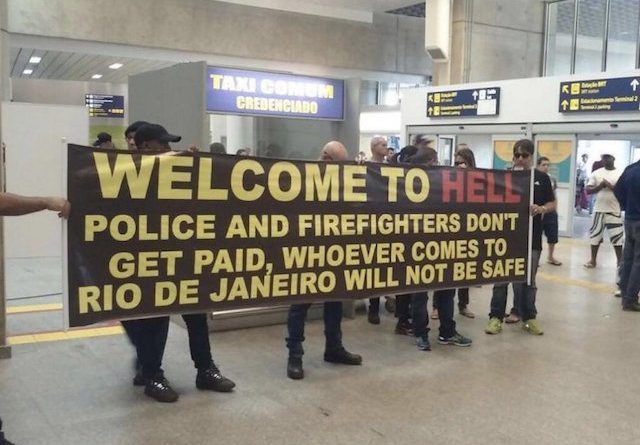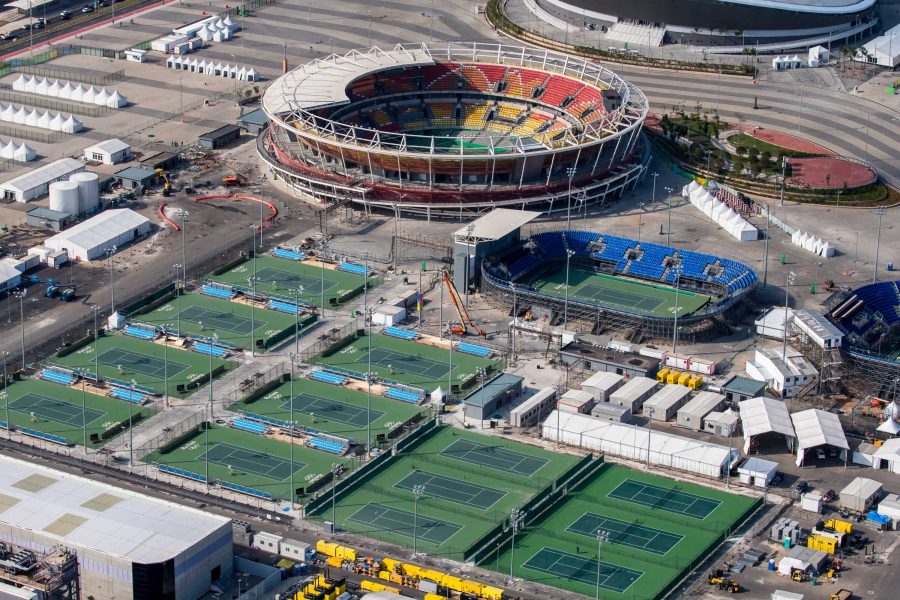Co-written by Aditya Pimplaskar, Cover photo by Gabriel Heusi, licensed under CC BY 3.0
Since the 2012 Summer Olympics in London, people have been awaiting the next spectacle in the sports world: The 2016 Games, held in Rio de Janeiro, Brazil. However, recent political turmoil with the impeachment of Brazilian President Dilma Rousseff, a faltering economy, large wealth gaps and public safety concerns have all contributed to a sense of anxiety surrounding the Games. This sentiment also pervaded the 2014 FIFA World Cup that was also held in Rio de Janeiro. However, people have been exaggerating their claims regarding Rio’s safety and qualifications for being the venue of the world’s largest sporting event. Here are some of the main controversies and why athletes and tourists should not be as concerned as they really are.
Water Quality
Water quality in Brazil is undoubtedly bad, with pollution and a flawed sewage system completely destroying the Brazilian government’s vision of a picturesque Games. On Aug. 9, the diving pool even turned green, sending shockwaves across social media. Despite these shortcomings, the water situation in Rio is not one that should be of major concern. Brazilian officials have made it clear that the waters off Copacabana beach (the venue in which athletes would be competing) are completely clean. The World Health Organization has also introduced protocol for officials to follow when testing the waters. The water should be safe enough for competition, and the green pool was merely a result of human error when calculating pH rather than the effect of a dangerous epidemic. If the water in Rio posed a serious threat to both athletes and tourists, the Olympic committee would never have allowed the Games to start. Instead, Rio’s water debacle has become more of a running joke, with Shrek memes all over Twitter and little conversation about the real water issues that Brazil faces as a nation.
The Zika Epidemic

One of the largest concerns regarding the Olympics’ safety is the recent Zika epidemic, caused by a virus mainly spread through mosquito bites. Although Brazil saw many cases of mosquito-born Zika infections earlier this year, Brock University researcher Fiona Hunter has discovered that mosquito activity in Rio decreases in the colder season in late August and early September. Due to this drop in mosquito activity, there is a substantially decreased chance of contracting Zika through a mosquito host in the Rio Olympic Games. Additionally, Zika can be transferred through a swapping of bodily fluids, which, if safe sex is practiced in Rio, should not be an issue. The International Olympic Committee has been sure to distribute proper contraception to athletes to prevent contraction of the disease through unprotected sex.
Crime
Following the 2014 World Cup, Brazil has been thrown into a state of political and social unrest, with the country in debt and struggling to support its own people. Weeks before the start of the Games, Rio police adamantly protested the Games and the Brazilian government with signs saying “Welcome to Hell.” Murder and violent crime rates have skyrocketed since the recent recession, and global media coverage has made it seem that Rio is a war-zone, incapable of containing its internal problems. However, not all stories of crime in Rio have been true. Twelve-time gold medalist Ryan Lochte is currently under heavy scrutiny for his allegations of being mugged. It must be noted that crime often occurs outside of tourists areas such as hotels in any country, and much less in the heavily monitored areas near and in the Olympic Village. If athletes and tourists are wise with their valuable possessions and are equally aware of their surroundings, they should be able to divert themselves from any danger. Crime can happen anywhere. It is not a trait strictly attributed to the Rio Games.
Verdict
The fact of the matter is that the Summer Olympics is a global occassion that only occurs once every four years. People must remember that the Olympics is a time for the world to get together and watch its best athletes compete. With so much attention directed towards the problems surrounding the Games, the significance of Michael Phelps’ five gold medals or Usain Bolt’s three will be greatly overshadowed. The Olympics is a sporting event, and it should serve as a proof of how the world can stand united even during times of political unrest.








